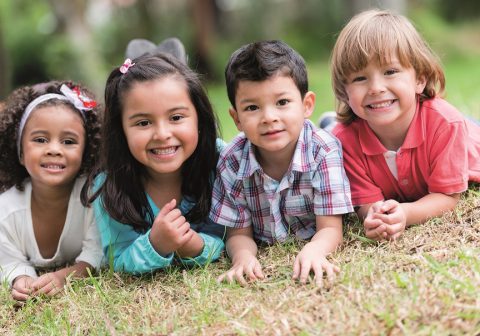
As an adoptive parent, you may find yourself struggling with difficult and confusing behaviours by your child. Often parents imagine that if only they love them enough, and give them time and patience, the child will grow to love them and feel secure. However, in reality many ‘normal’ parenting strategies do not work with adopted children.
Adopted children and their parents often face unique emotional challenges. Being prepared to tackle these issues can mean the difference between a healthy and an unhealthy family life. For many families, this involves the parents learning new ‘therapeutic’ approaches to parenting.
Understanding attachment
Research shows that the way a child is treated in the early years of their life can significantly affect and influence the way they relate to other people. Attachment develops when a baby instinctively turns to their caregiver for safety and comfort, and the caregiver protects and cares for the baby and meets their needs. Attachment is the profound and deep connection established between the child and caregiver in the early years of life. It is a basic human need, and secure attachment is the foundation for healthy physical, emotional and social development.
Children with secure attachments have the foundation they need to form a sense of themselves as lovable, worthy and capable. This then helps the child go on to develop future healthy relationships. ‘Attachment issues or difficulties’ are phrases often used to describe a variety of behaviours which may arise after a child has lost their primary carer and has experienced emotional abandonment in their early years. Even children who are adopted in the early days or weeks of life can suffer from attachment difficulties due to this early and fundamental loss. This experience can manifest itself in many ways. Children can become overly anxious to please, desperate to do anything to avoid being abandoned again. Some express their chaotic feelings in chaotic behaviour. Others turn in on their own pain and withdraw, unable to relate to others.

They may act in some of the following ways:
» Lack of appropriate eye contact
» Poor impulse control
» Weak cause and effect thinking
» Concrete thinking
» Lack of ability to give and take
» Poorly developed conscience
» Clingy and demanding behaviour
» Developmental delays
» Control issues
» Persistent chatter and questions
» Destructiveness
» Abnormal eating patterns
» Cruelty, severe taunting
» Problems with wetting and soiling
» Poor peer relationships
» Lying
Do ‘Traditional’ strategies work?
When a child has suffered neglect, abuse or loss, isolating them through use of ‘time out’ or the ‘naughty step’ may simply reinforce their belief that they are shameful and deserved to be neglected and abandoned. Such children are unlikely to have the ability to regulate their behaviour and emotions; they may feel ‘flooded’ by anger, rage, shame or fear.
Strategies such as reward charts and sticker charts that aim to reward, incentive or penalise can just add pressure and increase feelings of shame and failure. Children can demonstrate frequent outbursts of rage and anger, as a reaction to early abuse or neglect. Any attempt to impose control can feel very threatening to a child who has learned at an early age that being in control and not being vulnerable is the only way to stay safe in frightening situations.
Therapeutic parenting involves seeking to understand the complex emotions that are driving our children’s behaviour, and responding to those emotions in a calm, receptive yet assertive way, rather than just punishing the behaviour. Try to remember that traumatised children are often ‘stuck’ in the emotional and relational stage of an infant, and need managing accordingly.
What does this mean for parents and carers?

If trauma and attachment issues have affected your child, it can affect the whole family. Sometimes parents can become drawn into negative patterns of behaviour and response. You may feel that it is your fault or that you are not doing a good enough job; you might feel guilty and angry.
The good news is that it is possible to repair the child’s pattern of attachment and behavioural response. You can develop new parenting strategies to help your child learn new and healthier responses.
Therapeutic parenting
Therapeutic parenting can also be extremely effective for securely attached children; the only difference is it works much quicker. Therapeutic parents are simply parents who need to parent differently to help their children’s brains grow and make new connections.
Therapeutic parenting aims to help the child feel calmer when they are frightened and behaving badly through what may be fear. Empathy is frequently used to help children recognise their feelings and clear boundaries and rules are in place so children can predict what might happen next. It is important to think about the child’s emotional age and not their chronological age – their chronological age is not very relevant when parenting therapeutically. Therapeutic parents set very clear routines and boundaries and try hard not to steer away from these as over time they help children feel safe and secure.
Therapeutically parenting a child who has experienced neglect, abuse or trauma can take a very long time. It is possible you will see small improvements quickly however these are external changes. The bigger changes are internal changes and this is when the child has a fundamental shift in their internal working model. This is all about how the child views themselves and their relationship with the world and others. Some signs you may see in your
child when progress is being made are:
» Demonstrates empathy
» Link cause and affect
» Think before acting
» Trust adults to meet their needs
» Admit when they have made a mistake without feeling shame
Please speak with your social worker or give us a call if you would like more advice and support on how best to parent your child therapeutically.

